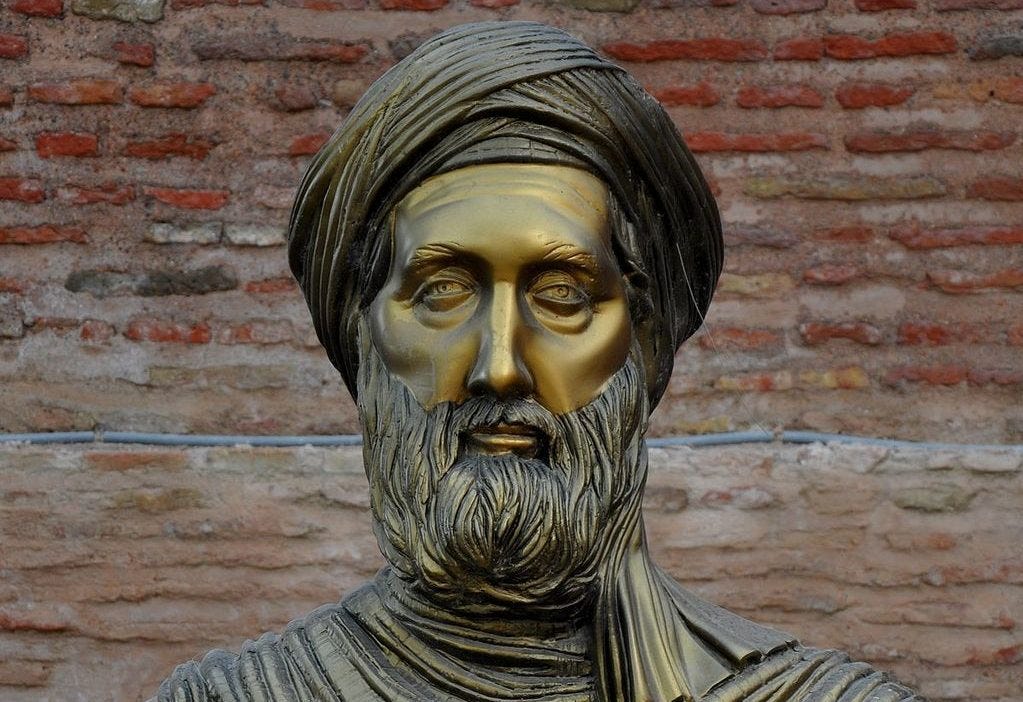Ibn Khaldun's Cycle: The End of Democracy & Circulation of Elites Explained
Ever feel like history is repeating itself? Like we're stuck in a loop, watching the same dramas unfold under different banners? Well, you're not alone. Centuries ago, a North African scholar named Ibn Khaldun peered deep into the patterns of power and predicted a cyclical dance of rise, decay, and renewal that continues to resonate today. His insights into the rise and fall of empires, and the crucial role of elite circulation, are more relevant now than ever. But what does this have to do with the end of democracy? And how can we, as citizens, navigate this intricate cycle?
The Prophet of Power: Introducing Ibn Khaldun
Ibn Khaldun, a 14th-century Tunisian polymath, was a man ahead of his time. He wasn't just a historian; he was a sociologist, economist, and political theorist rolled into one brilliant package. His magnum opus, The Muqaddimah (The Introduction), laid the groundwork for understanding the dynamics of power, social cohesion, and the inevitable ebb and flow of civilizations. This wasn't some airy philosophical musing; it was a rigorous analysis of historical trends, meticulously observing the rise and fall of dynasties.
But what was his secret sauce? What allowed him to unlock these timeless truths? It all boils down to his concept of 'Asabiyyah', or social cohesion – the glue that binds a group together. This sense of shared identity, purpose, and solidarity is, according to Khaldun, the very foundation of power.
'Asabiyyah' and the Rise of Dynasties
Think of 'Asabiyyah' as the fuel that ignites a movement. It's the shared feeling of belonging, the sense of "us" against "them" that allows a group to conquer, to build, and to thrive. Ibn Khaldun observed that societies with strong 'Asabiyyah' were dynamic, energetic, and capable of overcoming adversity. This internal strength propelled them to power, leading to the establishment of dynasties and empires.
But here's where things get interesting. As these ruling groups consolidate power, their 'Asabiyyah' often begins to erode. The comforts of wealth and luxury, the removal from the struggles that forged them, and the very nature of power itself tend to weaken the bonds that initially propelled them to greatness. Watch this video to get a deeper understanding of Khaldun’s insights:
The Rot Sets In: Decay and Stagnation
Ibn Khaldun argued that, inevitably, this decay sets in. The ruling elite, once forged in the fires of struggle, become complacent. They grow detached from the needs of the people they govern. Corruption takes root. The focus shifts from serving the community to preserving their own power and privilege.
This is the beginning of the end.
“The dynasties are subject to the same law of birth, growth, and decay as all other things.” – Ibn Khaldun
Sound familiar? Think of it:
Complacency: The elite become out of touch with the realities of the populace.
Corruption: Power becomes a means for self-enrichment, undermining trust.
Lack of Innovation: Stagnation sets in, stifling progress and adaptation.
The Circulation of Elites: A Necessary Renewal?
For Ibn Khaldun, the solution wasn't necessarily revolution but circulation. The rise of new elites, fueled by their own 'Asabiyyah' and a desire for change, becomes the engine of societal renewal. These newcomers, often emerging from outside the established power structure, bring fresh perspectives and a renewed sense of purpose.
But this circulation isn’t always smooth. Sometimes, the existing elite resists, clinging to power. This can lead to instability, conflict, and even the collapse of the entire system. Healthy societies, according to Khaldun, are those that facilitate, rather than obstruct, this natural turnover of power.
The End of Democracy? Applying Khaldun to Today
So, what does this have to do with modern democracies? Well, consider the warning signs: growing wealth inequality, the erosion of trust in institutions, political polarization, and the concentration of power in the hands of a few. Do these echo the patterns of decay that Ibn Khaldun observed centuries ago?
If so, the implications are profound. The lack of healthy elite circulation, the entrenchment of established interests, and the rise of resentment among the citizenry all point towards a potential crisis. Is the democratic ideal itself vulnerable to these cyclical forces?
Navigating the Cycle: A Call to Action
Ibn Khaldun's cycle isn't a prophecy of doom; it's a framework for understanding. It suggests that we can't simply assume the permanence of any political system. Instead, it demands that we actively cultivate the conditions that foster societal health:
Promoting civic engagement: Maintaining a robust 'Asabiyyah' requires a shared sense of purpose.
Holding elites accountable: Transparency and ethical governance are crucial.
Encouraging elite circulation: Breaking down barriers and creating opportunities for new leaders.
Ultimately, Ibn Khaldun's wisdom offers a powerful reminder: Power, like all things, is impermanent. By understanding the cycles, we can better navigate the challenges of the present and strive to create a more just and resilient society.
Unlock deeper insights with a 10% discount on the annual plan.
Support thoughtful analysis and join a growing community of readers committed to understanding the world through philosophy and reason.
Learning from the Past, Shaping the Future
Ibn Khaldun's legacy isn't just about predicting the future; it's about understanding the human condition. He recognized that power, like nature, follows patterns. By studying these patterns, we can equip ourselves to make informed choices and build a world that is more resistant to the inevitable forces of change.
Do you see the patterns of Khaldun in our world today? Share your thoughts, your anxieties, and your hopes. Let's discuss how we can use this ancient wisdom to shape a better future. This isn't just about the end of democracy; it's about the continuous evolution of society. It’s a reminder that the game never truly ends; it just keeps cycling, and we are the players.




This has talked about my country Kenya. The tactics we should use